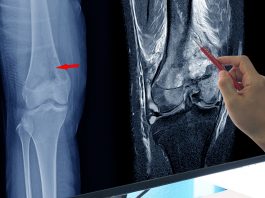UBC Faculty of Medicine researchers Dr Christopher Carlsten and Dr Janice Leung have received new federal funding to address major lung health challenges affecting Canadians.
Mark Holland, Canada’s Minister of Health, announced nearly $4m in funding for these UBC-led teams through the Canadian Institutes of Health Research (CIHR) Team Grants in Lung Health.
Long-term effects of wildfire smoke
Carlsten’s team will study the long-term health effects of wildfire smoke, which is increasingly pressing due to more frequent wildfires from climate change.
“As wildfires become more common in Canada due to climate change, it is more important than ever to address the health effects caused by exposure to wildfire smoke,” said Holland.
“These research teams’ initiatives will protect people’s lungs against poor air quality and other threats, including cancer, vaping, asthma, and inflammation.”
Investigating the effect of wildfire smoke on lung health
The project, ‘Lungs on Fire: Wildfire Smoke, Incident Diseases, Susceptible Populations, and Community Values in Canada,’ aims to optimise public health guidance and advance interventions to mitigate harm.
The team will examine how wildfire smoke exposure affects people based on factors like age, sex, genetics, exercise habits, and socioeconomic status.
“We are thrilled to have support for our work on understanding the long-term effects of wildfire smoke,” said Dr Carlsten.
“Unfortunately, these particulate-rich exposures are anticipated to increase and we need knowledge about how our communities will be affected in order to best target interventions to protect them.”
This multidisciplinary team includes experts in respiratory research, care, epidemiology, Indigenous lung health, and individuals with lived experience. Their findings will guide public health advice during wildfire emergencies.
Impact of vaping on Canadians
Leung’s team will explore vaping’s impact on youths and adults across Canada using advanced techniques. With vaping widespread, understanding its long-term effects on lung health is urgent.
The Canadian Lung Outcomes in Users of Vaping Devices (CLOUD) study aims to provide detailed lung evaluations for people who vape, helping Canadians make informed decisions.
“Many Canadians are asking about what vaping does to their lungs,” said Leung. “We are honoured to help answer these questions to keep their lungs healthy.”
The team includes physicians, nurses, scientists, Indigenous representatives, people with lived experience, and public health advocates. Their research seeks to inform Canadians about vaping’s impact from cellular to societal levels.
Nationwide effort to improve lung health
The federal government has committed $19.3m to nine research teams across Canada, partnering with the Canadian Cancer Society, the Canadian Lung Association, the Cancer Research Society, GSK, Heart & Stroke, and Mitacs, and collaborating with the Canadian Thoracic Society, Children’s Healthcare Canada, Cystic Fibrosis Canada, and Health Canada.
By addressing the health effects of wildfire smoke and vaping, these UBC-led projects aim to safeguard lung health for all Canadians, paving the way for a healthier future.









